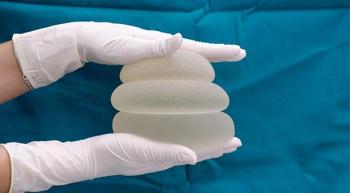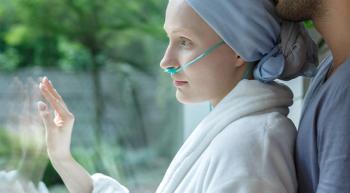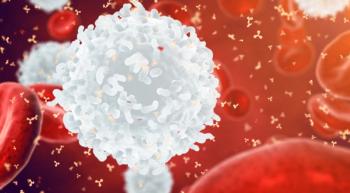
The FDA also released a video for patients that details seven things they should know about breast implants, including information about breast implant-associated lymphoma and systemic symptoms.

Ryan McDonald, Associate Editorial Director for CURE®, has been with the team since February 2020 and has previously covered medical news across several specialties prior to joining MJH Life Sciences. He is a graduate of Temple University, where he studied journalism and minored in political science and history. He considers himself a craft beer snob and would like to open a brewery in the future. During his spare time, he can be found rooting for all major Philadelphia sports teams. Follow Ryan on Twitter @RMcDonald11 or email him at [email protected].

The FDA also released a video for patients that details seven things they should know about breast implants, including information about breast implant-associated lymphoma and systemic symptoms.

The Food and Drug Administration (FDA) has approved the expansion of Kyprolis (carfilzomib) in combination to with Darzalex (daratumumab) plus dexamethasone in once- and twice-weekly dosing regimens for the treatment of patients with relapsed or refractory multiple myeloma who have received a maximum of three prior lines of therapy.

In this episode of the “CURE Talks Cancer” podcast, we spoke with Dr. Dan Tran about his journey with stage 4 lung cancer and what advice he offers other survivors and patients with cancer.

In addition to not delaying disease worsening, the immunotherapy Tecentriq was associated with a negative survival trend, but data on the length of life were immature at the time of analysis and further analysis is planned.

“With data showing a two-fold increase in disease-free survival with the vaccine alone and in combination with checkpoint inhibitors, we hope to one day change the narrative for people with melanoma — turning this disease into a chronic condition that can be treated and managed over time,” said Dr. Mark B. Faries.

If approved by the FDA, Imfinzi could be administered every four weeks at a fixed dose in patients with stage 3 NSCLC after they received chemoradiation, as well as in patients with previously treated bladder cancer.

The Food and Drug Administration granted a priority review to the new drug application for trilaciclib for patients with small cell lung cancer.

“Therapeutic trials are very, very important because thanks to them, our patients are living longer,” said Dr. Narjust Duma. “But (physicians) also need to stop and ask how our patients are living.”

“These results further support our efforts to reimagine medicine in this incurable malignancy and reach this underserved patient population, who are historically burdened with several years of various treatments,” said Dr. John Tsai.

“This study comes from a very honest place. Because I want all patients out there with lung cancer to feel empowered to ask their doctor because they don't have to suffer in silence,” said Dr. Narjust Duma.

The liquid biopsy test was also approved as a companion diagnostic test to uncover EGFR mutations in patients with NSCLC who could benefit from treatment with Tagrisso.

WellBe, a new voice-enabled virtual assistant, can remind patients with cancer to take their medication and keep them on track from the comfort of their own home.

The FDA based its decision on data from a phase 2 trial which showed that MK-6482 induced clinical responses among patients with von Hippel-Lindau disease-associated kidney cancer.

“Final results from ASCEND confirm the findings of the interim analysis and support the favorable efficacy and safety of (Calquence) versus standard-of-care regimens in relapsed or refractory CLL,” said Dr. Paolo Ghia.

“The FDA approval of (Tecartus) will change the way we treat patients with relapsed MCL forever and for the better,” said Dr. Michael Wang.

A patient assessment tool, known as the Functional Assessment of Cancer Therapy–Leukemia (FACT-Leu), was a viable and valid outcome measure for patients with acute myeloid leukemia not eligible for intensive therapy.

The Food and Drug Administration has approved Tecentriq in combination with Cotellic and Zelboraf for the treatment of patients with BRAF V600 mutation-positive advanced melanoma.

A list of the recent trial initiations that occurred within the cancer space in July.

The use of a mobility aide program in a cancer unit among the Mount Sinai Health System helped 76% of patients hospitalized for their cancer either maintain or improve their mobility scores, helping to reduce excess days spent in the hospital and readmission rates.

There are some job protected options for patients with cancer, survivors and caregivers to consider when it comes to returning to work during the COVID-19 pandemic. But, as one cancer rights attorney notes, there are many challenges to those options.

The FDA’s approval of Tecartus for adults with relapsed or refractory mantle cell lymphoma (MCL) is based on data that showed that the CAR T-cell therapy induced a response in 87% of patients.

Patients with multiple myeloma who were obese or overweight had a trend toward slightly improved progression-free survival and overall survival outcomes compared to patients who had a normal weight, according to data from an exploratory analysis.

In this week’s episode of the “CURE Talks Cancer” podcast, we spoke with Monica Bryant, chief operating officer of Triage Cancer, about the rights patients with cancer have when it comes to the workplace.

More than half of the patients (61%) admitted to either the hospital or ICU were discharged and 12% remained in the hospital. Nine patients had died by the time data collection was cut off for this study.

A roundup of the latest news and updates for patients with multiple myeloma from CURE®.

According to the lead study investigator, work needs to be done to ensure financial toxicity is not a deterrent to clinical trial enrollment and that trial sponsors and payers should consider trial expense reimbursement.

Dr. Timothy Burns, of UPMC Hillman Cancer Center, discusses developments in the treatment of lung cancer over the next several years that have exciting potential to impact the field.

In this episode of the “CURE Talks Cancer” podcast, we spoke with breast cancer specialist Dr. Julie Nangia about the increase of popularity in the use of devices known as cold caps to help patients with solid tumors receiving treatment for their disease keep more of their hair from falling out.

The manufacturer is working with the Food and Drug Administration to address any requests including changes to the protocol of the MELANI-01 trial to enhance patient safety.

The Food and Drug Administration’s Oncologic Drugs Advisory Committee voted in favor of the agency approving belantamab mafodotin to treat patients with relapsed or refractory multiple myeloma who have previously received at least four therapies.